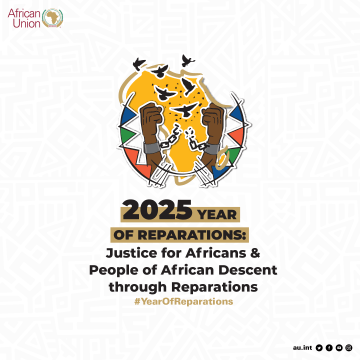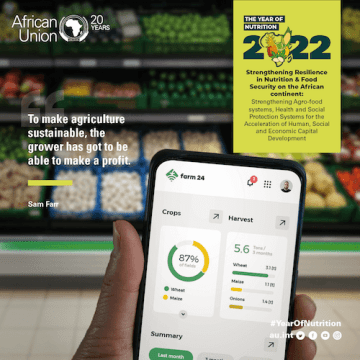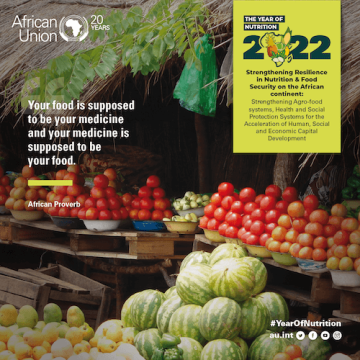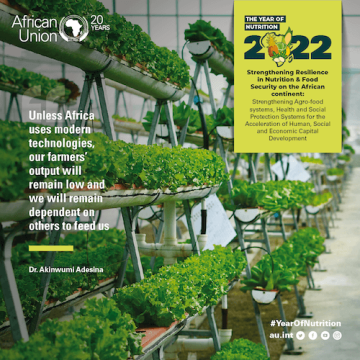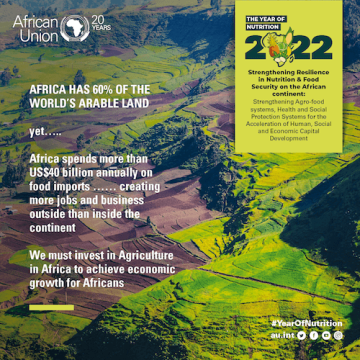
UNOSSC-APRM- UNDP-AUDA/NEPAD ROUNDTABLE
Taking the Freetown Declaration into Action: Leveraging South-South and Triangular Cooperation for Economic Resilience and Youth empowerment in Africa
Date: 24 July 2025 | Time: 9.00 - 10.15 am
Venue: UN Office for South-South and Triangular Cooperation Qatar Room- New York
Introduction and background
With the Outcome Document of the Second High-level United Nations Conference on South-South Cooperation, BAPA+40 document, member States recognize the importance of South-South and triangular cooperation in the implementation of 2030 Agenda for Sustainable Development along with other continental frameworks i.e Agenda 2063 for Africa’s economic and political integration. Therefore, the African Peer Review Mechanism, as a voluntary-led organ innovated by the African Union to promote good governance on the continent, forged continental and southern efforts to highlight the significance of SSTrC in promoting good governance and accelerate Agenda 2063 “the Africa we want” through impactful initiatives.
The African Peer Review Mechanism , in collaboration with the UNOSSC and various stakeholders and partners from the global South including the UNDP, Islamic Development Bank (IsDB), USAID, Saudi Development Fund, GIZ and others initiated the establishment of a biannual continental platform; The Africa High-Level Forum on South-South and Triangular Cooperation (HLFSSTrC) since 2021 to offer an institutional expose for African countries and partners from the global south to enrich knowledge-sharing and experiences in leveraging SSTrC in promoting Africa’s economic resilience, especially after the multi-faceted consequences of COVID-19 on African societies.
The Third High-Level Forum on South-South and Triangular Cooperation took place in Freetown Sierra Leone from 7-9 May 2025 under the auspices of H.E Dr. Julius Bio, President of Sierra Leone. 700 representatives of international and national organisations, authorities, thinktanks and youth associations took part in the Forum. Moreover, it provided an excellent opportunity for more than 100 youth representatives to engage in dialogue with member states on the role of youth, thinktanks and civil society in promoting SSTrC and social cohesion across the continent.
The Free Town Declaration of the Third High-Level Forum on South-South and Triangular Cooperation made a call for action through the Freetown Declaration which was endorsed at the closing ceremony of the Forum. The declaration mainly emphasised the following:
- RECOGNISE the current geopolitical shifts as a strategic opportunity for Africa and the broader Global South to assume a more assertive and coordinated role in shaping multilateral outcomes and WELCOME the continued support from Global South partners—such as China and India—for African candidatures in international organisations, as a step toward fostering a more equitable global order and addressing historical injustices against the African continent.
- Call on AU Member States to further prioritise and leverage South-South and Triangular Cooperation as a strategic mechanism to close financing gaps for Agenda 2063 implementation, and to strengthen partnerships with multilateral institutions—such as the Islamic Development Bank and the African Development Bank—to mobilise resources, deepen Global South collaboration, and expand access to development solutions.
- CALL FOR the systematic embedding of South-South and Triangular Cooperation into national governance systems—through policy, legal, and institutional frameworks including national development plans and APRM National Programmes of Action—to ensure coherence, sustainability, and measurable impact.
- ENCOURAGE the Republic of Sierra Leone to take a leading role in institutionalising South-South and Triangular Cooperation modalities at the national level and to champion the continental adoption of APRM Corporate Governance Principles.
- ENCOURAGE the APRM and the United Nations Office for South-South Cooperation to strengthen collaboration on knowledge management and the exchange of best practices across the Global South.
- ENCOURAGE African countries to foster South-South and Triangular Cooperation to enhance food security and climate-resilient agriculture, building on the post-Malabo CAADP as a guiding framework for effective governance in the agricultural sector.
- WELCOME the Sierra Leone–Egypt collaboration on civil service reform as a model of effective partnership and CALL ON Global South countries to institutionalise such mechanisms to share experience and advance capacity building, policy alignment, and governance transformation.
- RECOGNISE that digital transformation must be anchored in inclusive governance and institutional innovation, URGE governments to embed digital reforms in public sector strategies that ensure interoperability, equity, and citizen-responsive service delivery, CALL ON Member States to advance e-government platforms to rebuild public trust, and HIGHLIGHT the role of South-South cooperation in accelerating this transformation through peer learning, joint capacity building, and shared digital solutions.
- ENCOURAGE the active engagement of Africa’s private sector to expand public- private collaboration private collaboration, catalyse investment in digital infrastructure and innovation, and promote the meaningful participation of women in trade and entrepreneurship, including through the effective implementation of the AfCFTA.
- WELCOME the momentum toward a formal Youth South-South Network; CALL FOR structured mechanisms to integrate youth perspectives into policymaking and innovation ecosystems; and URGE the operationalisation of gender-responsive protocols under the African Continental Free Trade Area and across national economic strategies to reduce barriers to trade and entrepreneurship for women and youth in Africa.
- RECOGNISE the critical role of civil society organizations, academia, and grassroots movements in empowering youth and women as key agents of sustainable development across the Global South; CALL FOR stronger, cross-sectoral partnerships to amplify their voices, track progress on gender and youth commitments, and co-design inclusive policies and programs; and ENCOURAGE the creation of enabling policy and legal frameworks that protect civic space and foster youth and women leadership and innovation at all levels.
Objectives:
Acknowledging the provided background, this roundtable aims to:
- Familiarise representatives of African Union countries about the outcomes of the Third High-Level Forum’s Freetown Declaration and key recommendations.
- Exchange views between APRM, UNOSSC, AUDA-NEPAD and partners on adopting impactful initiatives to take the declaration into actions.
Agenda of the Roundtable:
Moderation: Mr. Denis Nkala, Chief, Intergovernmental and UN Systems Affairs, UN office for South-South Cooperation.
Time slot | Speaker |
9.00-9.10 am | · Ms. Dima Al-Khatib, Director, UN office for South-South Cooperation · H.E Selma Hadadi, Deputy Chairperson, African Union Commission (tbc)/ or Amb. Fatima Mohamed, Permanent Observer of AU Mission to the United Nations |
9.15-9.40 | Panel Discussion: · H.E Kenyeh Barlay, Minister of Planning and Economic Development and APRM Focal Point Sierra Leone (5 min) - Amb. Selma Bakhta Mansouri, Secretary of State to the Ministry of Foreign Affairs, APRM Chair of Focal Points, People’s Democratic Republic of Algeria. (5 min) - Ms. Tatyana Teplova, PhD · Head of Division, Global Partnerships, Inclusion and Justice, OECD - Ambassador Marie- Antoinette Rose Quatre, APRM Continental Secretariat - Ms. Sara Hamouda, APRM Continental Secretariat: outcomes of the HLFSSC and potential initiatives to promote triangular cooperation between APRM member states. |
9.45-10.10am | Reflections from AU ambassadors and partners Ambassadors of Egypt, Uganda, South Africa and Sierra Leone UNDP, UN Habitat Permanent Observers of India/Brazil/ China to the UN |
10.10-10.15 am | Closing remarks: Dr. Michael Imran Kanu, Permanent Representative of of Sierra Leone to the United Nations |
Contact Persons:
- Sara Hamouda, Continental Governance Officer, APRM Continental Secretariat. sara.hamouda@aprm-au.org
- Cynthia Olouasa, Regional Policy Analyst, UN office for South-South Cooperation. cynthia.olouasa@unossc.org.
Materials for reading:
APRM, Third High-Level Forum on South-South and Triangular Cooperation for Sustainable Development https://aprm.au.int/en/events/2025-05-07/3rd-africa-high-level-forum-south-south-and-triangular-cooperation-sustai.
APRM Virtual Training on South-South and Triangular Cooperation for Sustainable Development
https://aprm.au.int/sites/default/files/files/2025-01/report-south-south.pdf.
Download PDF: Concept Note - UNOSSC-APRM-UNDP-AUDA/NEPAD Roundtable
Register in advance:
Registration Link: UNOSSC-APRM-UNDP-AUDA/NEPAD Roundtable
Watch meeting recording:
Please see the recording link and the passcode:
APRM-UNOSSC South-South Cooperation Roundtable
Passcode: &p62%5Dv

